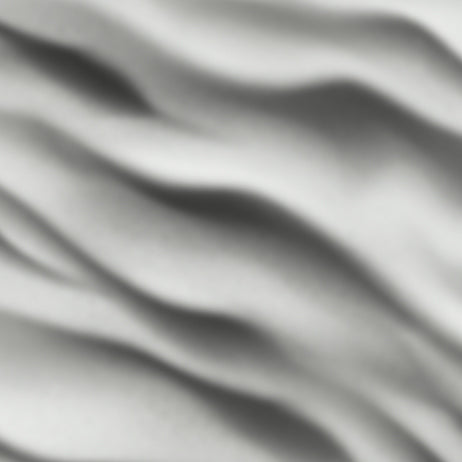Jewellery Materials
365 Sleepers earrings and body jewellery are made from a range of different metals, including 9ct Gold, 316L Surgical Stainless Steel, Solid Sterling Silver, 22ct Gold Plated Sterling Silver and G23 Titanium. The material you choose is important because your skin can react differently to different metals.
365 SLEEPER MATERIALS
- 9ct Solid Gold
- 316L Surgical Stainless Steel
- Sterling Silver
- 22ct Gold Plated Sterling Silver
- G23 Titanium
Gold
Pure gold, which is 24 carat (the metric equivalent being 1000), is generally considered too soft for practical uses in jewellery and is alloyed with other precious and base metals to increase its durability. The most common carats of gold jewellery, with their metric equivalent are:
9ct = 375 (375 parts of gold in 1000 parts)
14ct = 585 (585 parts of gold in 1000 parts)
18ct = 750 (750 parts of gold in 1000 parts)
Hallmark stamps on gold jewellery can be either in carat or parts. Eg. 9ct gold can be stamped with “375” or “9ct”.
To make the different colour golds, different alloys are mixed with the gold.
Rose Gold is created by using Copper.
White gold is created by using Palladium and/or Silver.
Beware of cheap white gold alloys that use Nickel as an alloy. Many manufacturers are still using Nickel to keep their costs down as Palladium is much more expensive than Nickel. Nickel may cause allergic reactions to some people. All our gold jewellery at 365 Sleepers is nickel free!
Gold is biocompatible and is recommended for wear in healed piercings. We do not recommend that you wear gold body jewellery in new piercings.
Sterling Silver
Pure Silver is generally too soft for producing jewellery items. Therefore, silver is usually alloyed with copper to give it strength. Sterling Silver consists of 92.5 parts pure silver and the remaining 7.5 parts are made up of alloys.
Sterling silver can, and in most cases, will tarnish. This is due to a reaction of the metal with sulphur containing oxygen particles in the air. Also taking certain medications can cause changes in skin acidity and may cause sterling silver jewellery to tarnish.
Tarnish on sterling silver starts out as a yellowish/orange tinge and is most easily removed at this stage. Silver tarnish progresses to a blackish purple coating, known as oxidisation, becoming much more difficult to remove. Heavy tarnishing will require commercially available polish cloths, creams or dip liquids. Use care with these types of jewellery cleaners, limiting the exposure of gemstones to silver cleaners as they may contain chemicals that can harm certain gemstones. Always rinse and dry jewellery thoroughly. Use a soft cloth to make sure no residual cleaner remains. Prolonged, unprotected storage is generally when tarnish occurs. To prevent sterling silver jewellery from tarnishing whilst being stored, store in a soft pouch in a cool, dry place.
316L Surgical Stainless Steel
Surgical Stainless Steel also known as 316L and Implant Grade Steel, is a steel alloy that is the most common Body Piercing material.
It can be polished to an extremely shiny surface and many people prefer this material to Titanium because of its high luster, colour and shine.
Many of our Surgical Steel items have been electro-polished. This is a sophisticated surface finishing technique, where electrochemical activity slowly erodes a thin layer from the surface of the jewellery resulting in micro smoothing. The resultant surface is ultra-smooth and crevice free. It has a higher surface integrity and efficiency than jewellery polished by other means.
Surgical Stainless Steel is also used in the manufacture and handling of food and pharmaceutical products where it is required in order to minimize metallic contamination. Surgical steel is highly biocompatible and should not irritate the skin.
G23 Titanium
Titanium has many features that make it the perfect choice for earring and body jewellery. Titanium is extremely lightweight (around 60% the weight of stainless steel) and has the highest biocompatibility of any metal. Titanium jewellery will not irritate your skin and can reduce healing times in new piercings. It feels very comfortable and is recommended for people who have experienced irritation with other metal jewellery.
Our Titanium jewellery is manufactured from commercial pure Grade 23 Ti6AL4V ELI, also known as G23 Titanium. It is the only Grade recommended by the leading Association of Professional Piercers.
Also, the vivid colours available in our Titanium range are achieved by the Ion plating (IP) process that is sometimes called ion assisted deposition (IAD) or ion vapor deposition (IVD). The greatest bonus of this titanium coating process is that the titanium nitride produced is both harder and chemically more stable than that produced through traditional plating methods. So our coloured Titanium is still all Titanium as a finished product.


